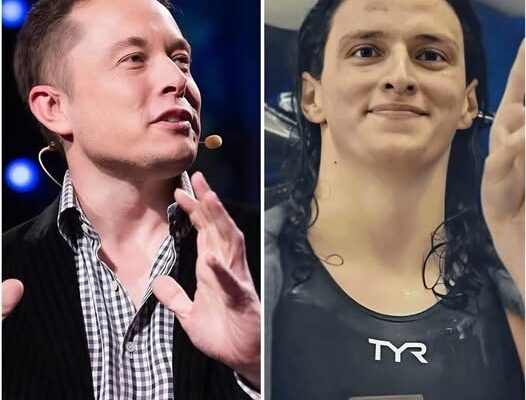contentious discussion about the acceptance of transgender athletes in women’s sports has been rekindled by Elon Musk’s recent tweet. The billionaire businessman, who is well-known for making strong and frequently contentious remarks, said that “no biological males” need to be permitted to participate in women’s sports. This remark, which was made in a typical Twitter message, has generated a lot of responses on social media and elsewhere, both positive and negative.

Subscribe to Our FREE newsletter
Get the latest news and more from Middle Aged Club straight to your inbox.SubscribeI consent to receiving emails and personalized ads.
Musk’s post mentioned a subject that has generated a lot of discussion lately. His claim echoes worries that granting entry to women’s sports to transgender women—those who identify and live as women but were designated male at birth—creates an unfair playing field.
The foundation of Musk’s case is the idea that biological males are inherently stronger, faster, and more resilient than biological females.

“In sports, fair competition is essential,” Musk added in a subsequent tweet. “Decades of advancement in women’s sports are undermined when biological males are permitted to compete in women’s divisions.”
Others attacked Musk’s comments as being too basic in tackling a difficult topic and contemptuous of transgender rights, even though many of his supporters and famous personalities shared his views. He was charged by some with promoting contentious discourse that marginalizes transgender people.

Transgender athletes participating in women’s sports is not a brand-new problem. It has sparked contentious debates among athletes, legislators, and advocacy organizations in recent years. The topic of how to strike a balance between fairness and diversity in competitive sports is at the center of the discussion
Athletes should be permitted to compete in line with their gender identity, according to proponents of transgender inclusion. They cite rules set forth by groups such as the International Olympic Committee (IOC) that prohibit transgender women from competing in women’s competitions unless they reach certain hormone thresholds. These regulations seek to promote inclusion while addressing worries about competitive advantage.

However, detractors contend that these steps are insufficient to eradicate any physical benefits that could still exist after hormone therapy. For instance, research indicates that puberty, which causes boys to have higher testosterone levels, may have long-term positive effects on bone density and muscle mass, two elements that might affect athletic ability.
People who believe that the integrity of women’s sports is at jeopardy have found resonance in Elon Musk’s comments. Concerns have been raised by a number of well-known athletes and advocacy organizations over how transgender inclusion would affect possibilities for female athletics.

Allowing biological men to participate in women’s divisions, according to some, may deter participation and lessen appreciation for the accomplishments of women.
Advocates for transgender rights, meanwhile, interpret Musk’s remarks as representative of a larger cultural backlash against gender variety. They contend that remarks such as his reinforce negative stereotypes and fail to acknowledge the obstacles faced by transgender athletes, such as prejudice and restricted access to resources.

Like many of Musk’s tweets, the response has been quick and divisive. His supporters applauded him for tackling what they see to be a serious problem in athletics. One reader said, “At last, someone with a platform is advocating for justice.”
Musk, meanwhile, was criticized for escalating tensions and oversimplifying the argument. Another user tweeted, “Seeing someone with such influence downplay the significance of diversity and inclusion is disheartening.”

Public personalities have also offered their opinions. Social media has been used by well-known athletes, reporters, and activists to express their opinions. Martina Navratilova, a tennis legend who has previously voiced concerns with the inclusion of transgender athletes in women’s sports, endorsed Musk’s position.
LGBTQ+ activists, on the other hand, took issue with his comments and emphasized the significance of establishing environments that allow all athletes to succeed.

Legal and ethical issues are at the center of the discussion around transgender athletes. Some nations have passed legislation limiting transgender athletes’ access to sports. For instance, a number of states in the US have passed laws prohibiting transgender women and girls from participating in school-level women’s sports.
Civil rights organizations have strongly opposed these regulations, claiming that they violate the rights of transgender people and further marginalize them. The dispute has now spread to the international arena, where governing organizations including as FIFA and World Athletics are debating how to handle it while maintaining diversity and justice.

It is not a simple effort to find a solution to this controversial subject. From developing distinct categories for transgender athletes to improving eligibility requirements based on scientific evidence, proponents on both sides of the issue have put forth a number of remedies. Reaching a consensus is still difficult, though.
Elon Musk’s remarks have heightened a heated discussion and highlighted the stark differences on this topic. His remarks are seen by some as an essential defense of sports fairness. For others, they emphasize the necessity of having more compassion and understanding for transgender people.

One thing is evident as the discussion goes on: the controversy surrounding transgender participation in women’s sports is a microcosm of larger conflicts in society around gender, identity, and equality. The topic has received more attention as a result of Elon Musk’s involvement, but it also calls into question how powerful people may influence public opinion.
It’s unclear if his comments will spark fruitful discussion or widen already-existing gaps. But there is no doubt that athletes, legislators, and the general public will need to thoughtfully engage in the pursuit of an equitable and inclusive solution.



